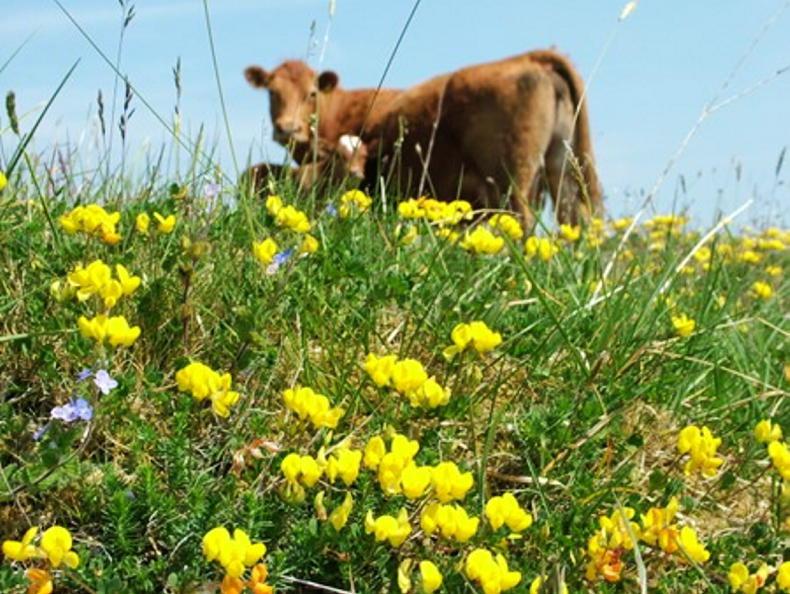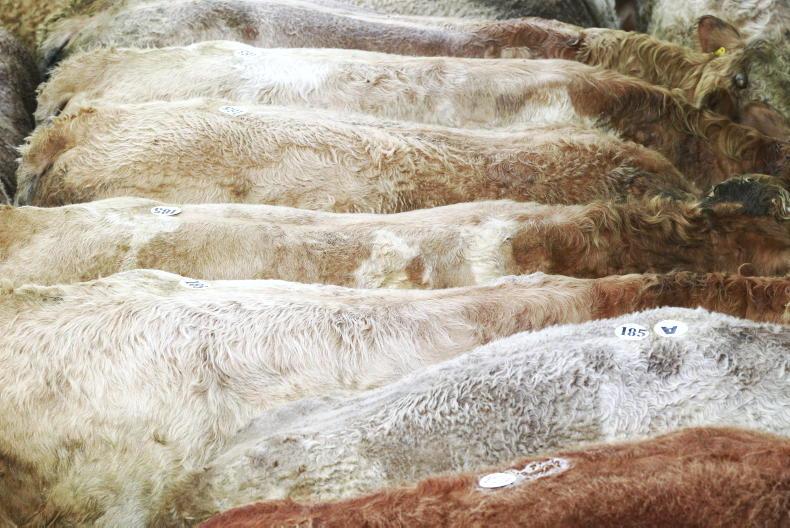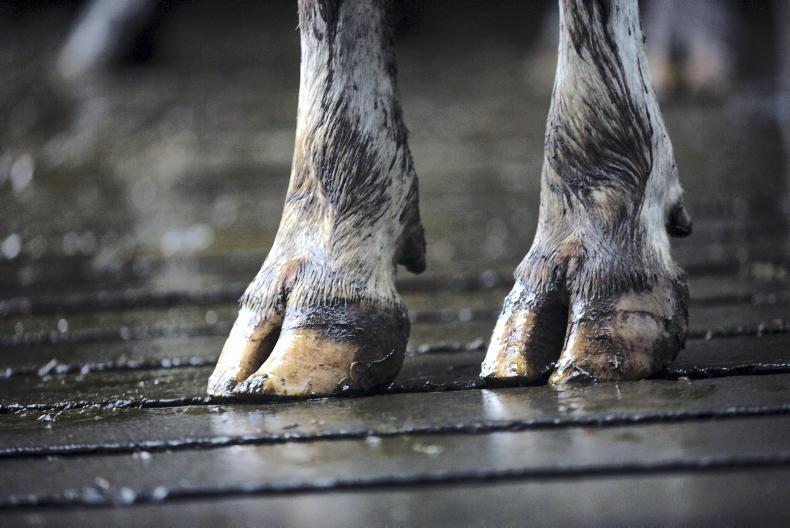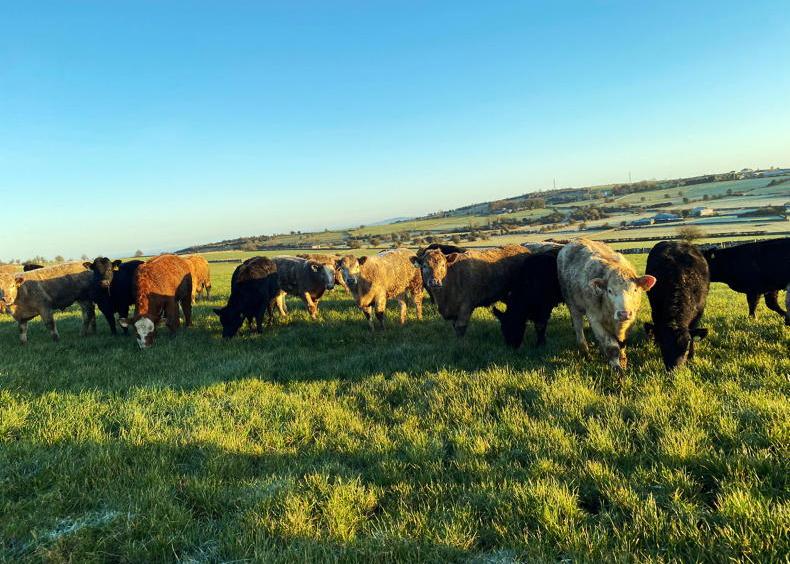With 2023 well and truly behind us, and as we embark on a new farming year, it’s an opportune time to both reflect and to cast forward.
Over the past six months, it’s been my privilege to learn about, and share, the stories of some inspiring Irish farmers and their farming journeys.
From 11 different counties, these are stories of farmers young and old, male and female, part-time and full-time, new entrants and multi-generational; farmers wresting a living from holdings that are small and large, fertile and ‘disadvantaged’, organic and conventional. Though all different, they have a lot in common.
Last year was challenging for these, as for most, Irish farmers. Poor weather has been hugely damaging for our tillage farmers, as have low prices, negative PR and biting regulations for the dairy sector.
Stubbornly high input costs, the bedding-in of a new CAP and resultant payment delays have impacted all sectors.
These challenges, and others, have been reflected in the conversations I’ve had with farmers, yet their resilience and passion for their profession consistently shines through.
The stories presented here highlight the diversity within farming, a richness which contradicts the frequent oversimplification of a wonderfully complex sector.
Every farmer has a story, a journey to share. It’s fascinating to learn how the subset of farmers profiled here have ‘painted their own canvas’ in different ways, often bucking convention in doing so.
While income is a key, shared motivation for all the farmers I have met, so too is their pursuit of wellbeing in a broader sense – their own, that of their family, their livestock and of the natural world that surrounds them – indeed, this has informed many of the steps they have taken on their particular farming journeys.
Trying new things
Innovation has also been a common theme. I have met farmers who have repurposed their farm buildings to generate renewable energy, to host visiting groups and in one case to provide a kennelling service to pet owners.
Farmers who have direct-marketed their beef, vegetables, seeds, honey – and even beer – to add value to their produce. Farmers who have actively engaged in EIPs to protect their archaeology, watercourses and wildlife. Farmers who have planted sections of their land with trees, actively managing them to boost productivity –and their own wellbeing.
Many farmers I have met are engaged in social farming – a wonderful gift to those most in need, but a gift that seems to give back so much in return.
Several farmers I met regularly host visiting groups, monetising their knowledge while engaging with new perspectives. Some have gone so far as to share their land with others who want to grow food for their own families.

Farmers will be looking forward to a brighter year ahead in 2024.
All of the farmers profiled here work hard to produce quality food and multiple ecosystem services from their land and all are worthy of our – and society’s – respect, admiration and gratitude.
Profit and purpose
Making farming life attractive for future generations is something that also concerns all the farmers I met. This will be largely about profit and purpose: ensuring farming can deliver a decent, stable income and regain the societal relevance and respect it deserves.
Producing nutritious food and a healthy environment must become an attractive career prospect for the next generation.
The farmers profiled in these pages show how this might be done – cutting costs, adding value to outputs, working with nature, sharing their knowledge – and being rewarded for it. To scale this impact, farmers will need far better, longer-term supports from the public and private purse.
I have been consistency impressed with the openness and generosity of these farmers in sharing their stories, and by their eloquence, passion and commonsense.
Farmers need to be far more involved in co-creating policy and research solutions to the sustainability challenges that they daily encounter
The discourse around sustainability rightly includes the voices of policymakers and researchers, but that of the practitioners – the farmer, forester or fisher – is, frustratingly, far less audible.
These voices need to be heard, not just in these pages but far beyond: policy and research needs to better understand, incorporate and support the knowledge and needs of our primary producers. Farmers need to be far more involved in co-creating policy and research solutions to the sustainability challenges that they daily encounter.
As we look ahead to 2024, it is with the usual mix of uncertainty and hope. Many of the challenges that currently beset our society – food security and nutrition, climate change and biodiversity loss, physical and mental health issues – can be reconstrued as opportunities for farm families.
By engaging with new ideas and partners, we can and must collectively reimagine farming to meet the evolving needs of society: such a reimagining is manifest in the case studies presented in these pages, and I look forward to bringing you more such stories in 2024.
A common feature of the farmers profiled here has been their hunger to learn, and their willingness to try new things.
If you are setting new year’s resolutions, consider joining a discussion group or farm walk, attend a workshop, or create a ‘hare’s corner’, eg a pond, on your land and observe the impact.
Looking after our wellbeing in 2024 should be our top priority. There are some great farmer-focused resources – podcasts, videos, webinars – to help farmers build resilience and enhance wellbeing.
With 2023 well and truly behind us, and as we embark on a new farming year, it’s an opportune time to both reflect and to cast forward.
Over the past six months, it’s been my privilege to learn about, and share, the stories of some inspiring Irish farmers and their farming journeys.
From 11 different counties, these are stories of farmers young and old, male and female, part-time and full-time, new entrants and multi-generational; farmers wresting a living from holdings that are small and large, fertile and ‘disadvantaged’, organic and conventional. Though all different, they have a lot in common.
Last year was challenging for these, as for most, Irish farmers. Poor weather has been hugely damaging for our tillage farmers, as have low prices, negative PR and biting regulations for the dairy sector.
Stubbornly high input costs, the bedding-in of a new CAP and resultant payment delays have impacted all sectors.
These challenges, and others, have been reflected in the conversations I’ve had with farmers, yet their resilience and passion for their profession consistently shines through.
The stories presented here highlight the diversity within farming, a richness which contradicts the frequent oversimplification of a wonderfully complex sector.
Every farmer has a story, a journey to share. It’s fascinating to learn how the subset of farmers profiled here have ‘painted their own canvas’ in different ways, often bucking convention in doing so.
While income is a key, shared motivation for all the farmers I have met, so too is their pursuit of wellbeing in a broader sense – their own, that of their family, their livestock and of the natural world that surrounds them – indeed, this has informed many of the steps they have taken on their particular farming journeys.
Trying new things
Innovation has also been a common theme. I have met farmers who have repurposed their farm buildings to generate renewable energy, to host visiting groups and in one case to provide a kennelling service to pet owners.
Farmers who have direct-marketed their beef, vegetables, seeds, honey – and even beer – to add value to their produce. Farmers who have actively engaged in EIPs to protect their archaeology, watercourses and wildlife. Farmers who have planted sections of their land with trees, actively managing them to boost productivity –and their own wellbeing.
Many farmers I have met are engaged in social farming – a wonderful gift to those most in need, but a gift that seems to give back so much in return.
Several farmers I met regularly host visiting groups, monetising their knowledge while engaging with new perspectives. Some have gone so far as to share their land with others who want to grow food for their own families.

Farmers will be looking forward to a brighter year ahead in 2024.
All of the farmers profiled here work hard to produce quality food and multiple ecosystem services from their land and all are worthy of our – and society’s – respect, admiration and gratitude.
Profit and purpose
Making farming life attractive for future generations is something that also concerns all the farmers I met. This will be largely about profit and purpose: ensuring farming can deliver a decent, stable income and regain the societal relevance and respect it deserves.
Producing nutritious food and a healthy environment must become an attractive career prospect for the next generation.
The farmers profiled in these pages show how this might be done – cutting costs, adding value to outputs, working with nature, sharing their knowledge – and being rewarded for it. To scale this impact, farmers will need far better, longer-term supports from the public and private purse.
I have been consistency impressed with the openness and generosity of these farmers in sharing their stories, and by their eloquence, passion and commonsense.
Farmers need to be far more involved in co-creating policy and research solutions to the sustainability challenges that they daily encounter
The discourse around sustainability rightly includes the voices of policymakers and researchers, but that of the practitioners – the farmer, forester or fisher – is, frustratingly, far less audible.
These voices need to be heard, not just in these pages but far beyond: policy and research needs to better understand, incorporate and support the knowledge and needs of our primary producers. Farmers need to be far more involved in co-creating policy and research solutions to the sustainability challenges that they daily encounter.
As we look ahead to 2024, it is with the usual mix of uncertainty and hope. Many of the challenges that currently beset our society – food security and nutrition, climate change and biodiversity loss, physical and mental health issues – can be reconstrued as opportunities for farm families.
By engaging with new ideas and partners, we can and must collectively reimagine farming to meet the evolving needs of society: such a reimagining is manifest in the case studies presented in these pages, and I look forward to bringing you more such stories in 2024.
A common feature of the farmers profiled here has been their hunger to learn, and their willingness to try new things.
If you are setting new year’s resolutions, consider joining a discussion group or farm walk, attend a workshop, or create a ‘hare’s corner’, eg a pond, on your land and observe the impact.
Looking after our wellbeing in 2024 should be our top priority. There are some great farmer-focused resources – podcasts, videos, webinars – to help farmers build resilience and enhance wellbeing.











SHARING OPTIONS